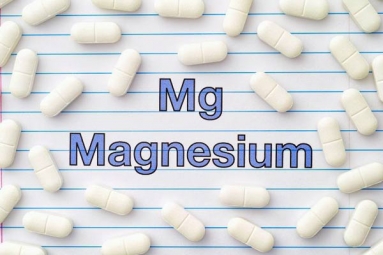
(Image source from: Canva.com)
When we consider the health of our kidneys, we usually think of issues like staying hydrated, how much salt we eat, or our blood pressure. However, there’s another important factor that supports kidney functioning: magnesium. Dr. Bhanu Mishra, a Consultant Nephrologist at BLK Max Hospital in New Delhi, states, “Magnesium is involved in more than 300 chemical reactions in the body, ranging from how nerves communicate to managing blood sugar levels, yet one of its most neglected functions is aiding kidney health”. Our kidneys work to filter out waste, keep the balance of electrolytes, and control blood pressure. Magnesium is crucial for all of these tasks.
“Magnesium helps to keep blood pressure healthy, decreases inflammation, and supports blood vessel function, which are all necessary for the best kidney function,” explains Dr. Mishra. It also assists the kidneys by helping enzymes manage both mineral levels and waste removal, which are essential for long-lasting kidney health. One well-known benefit of magnesium is how it protects against kidney stones, particularly calcium oxalate stones, which are the most common kind. Dr. Mishra comments, “Magnesium connects with oxalate in the intestines, which lowers its absorption and helps stop stones from forming in the kidneys”. He adds, “Not getting enough magnesium can make people more prone to having kidney stones repeatedly”. New studies also indicate a strong link between low magnesium levels and the worsening of chronic kidney disease (CKD).
Dr. Mishra explains, “Hypomagnesemia, or low magnesium in the blood, is known to increase insulin resistance and promote blood vessel hardening and oxidative stress, all of which contribute to CKD development”. He also notes, “People with CKD often show abnormal magnesium processing, making it essential to keep track of their levels”. To ensure you have enough magnesium, eating the right foods should be your priority. Dr. Mishra suggests a diet rich in magnesium that includes leafy greens, nuts, seeds, legumes, and whole grains.
However, for those already facing kidney problems, taking magnesium supplements isn't always safe. Dr. Mishra warns, “Magnesium supplements should never be taken without guidance from a doctor if you have kidney issues. Poor kidney function can result in too much magnesium building up in the body, which can be harmful”. While magnesium may not always receive attention, its importance in kidney health is significant. This mineral can help prevent stones and slow down disease progression, making it a key factor for maintaining kidney wellness, but only if it is used properly.











